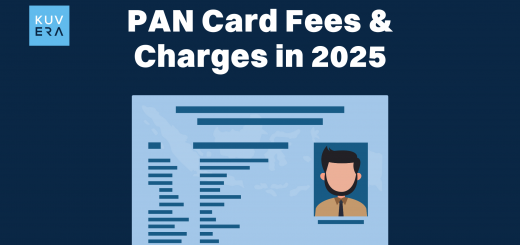The National Savings Certificate is a fixed-income investment scheme provided by the government of India that is simple to open at any post office. It is a savings scheme that persuades investors to invest while reducing their income tax liability under Section 80C of the Income Tax Act, 1961.
National Savings Certificate (NSC)
National Savings Certificates were initially introduced in the 1950s. National Savings Certificates (NSCs) are fixed-income investments that can be opened at any post office branch. The scheme is an initiative of the Indian government. It is a savings scheme that attracts mostly small investors as subscribers. The fixed maturity time for NSC is five years. Although there is no upper limit to the amount people can invest in National Savings Certificates, only investments up to Rs. 1.5 lakh qualify for a tax break under Section 80C of the Income Tax Act. The fixed interest rate on the certificates is presently 6.8% per annum. The interest rate is revised on a regular basis by the government. These certificates are available for purchase at any post office in India by any resident. It is a low-risk initiative that the government supports with a predetermined return rate.
Features of National Savings Certificate (NSC)
- Interest Rates: The certificates currently earn an annual fixed interest rate of 6.8% per annum (updated regularly by the government), ensuring a steady income for the investor.
- Maturity period: Initially, there were two different types of certificates available under the scheme: NSC VIII Issue (5-year tenure) and NSC IX Issue (10-year tenure). Only the first issue is available for subscription following the termination of the second.
- Tax-saving ability: As a government-backed tax-saving plan, NSC entitles the principal investor to annual tax savings of up to Rs. 1.5 lakhs under Section 80C of the Income Tax Act.
- Investment Flexibility: There is no upper limit and anyone can start with a minimum investment of Rs. 1000.
- Accessible: It can be bought at any post office upon production of the necessary KYC documentation. Additionally, the certificate can be easily transferred from one Post Office to another as well as from one person to another without affecting the accumulation of interest or the original certificate’s maturity.
- Loan Collateral: In banks and NBFCs, NSC certificates are recognised as security or collateral for secured loans. In this instance, a transfer stamp is affixed to the certificate and transferred to the bank while disbursing loans
- Compounding’s power: Interest earned is automatically reinvested and compounded annually, but it is only payable at maturity.
- Nomination: The investor may nominate any family member (even a minor) to inherit in the tragic event of his or her death.
Types of National Savings Certificate
The following are the many ways investors can hold National Savings Certificates:
- Single Holder Type Certificate: Single-holder certificates are exclusively given out to an individual, as the name implies. He or she has the option to nominate someone for the certificate. The original holder is ultimately in charge of making decisions, though. Additionally, these certificates may be issued to a minor’s legal guardian.
- Joint ‘A’ Type Certificate: Joint ‘A’ type certificates are issued to joint holders, i.e., up to three adults. The proceeds of the certificate are paid to both of these joint holders when it matures. All people are involved in making decisions. The signature of all joint holders is necessary in order to appoint a nominee, cancel the nomination, or transfer the nominee.
- Joint ‘B’ Type Certificate: This type of National Savings Certificate is also issued to up to three adults. However, the primary distinction between type “A” and type “B” is that the latter is paid to any one of the joint holders. The decision-making and nomination powers in type “B” are identical to those in type “A.”
Benefits Of Investing In National Savings Certificate
Some of the main benefits of investing in NSCs include the following:
- NSC investments are almost risk-free because the Indian government backs them.
- These investments provide one of the highest returns among fixed-income securities.
- With a modest minimum investment requirement of Rs. 1,000 and no maximum investment limit, NSC investments provide investors with flexibility.
- National Savings Certificates are available at all Indian post offices, allowing for their easy purchase.
- These certificates can also be obtained on behalf of a minor. They offer annual tax savings of up to Rs. 1.5 lakh.
- In the event of the investor’s passing, NSC investments may also be transferred to another family member (nominated by the investor).
Tax Benefits Of National Savings Certificates
Small- to middle-income investors might consider NSC as a safe investment option because it also lowers their tax liability.
- Tax deduction for the amount invested: Under Section 80C of the Income Tax Act of 1961, up to 1.5 lakh invested in National Savings certificates qualifies for a tax deduction. This is one of the most significant tax advantages of investing in them.
- Save tax on Interest: Interest earned on NSC is taxable under the head “Income from Other Sources” However, the interest is reinvested for the first four years and will not be subject to income tax because of this; instead, this reinvestment will be recognised as a deduction under Section 80C of the Income Tax Act of 1961. Only four years of interest can be reinvested because the NSC has a five-year maturity period. Along with the maturity amount, the investor also receives the interest generated in the fifth year. In essence, the tax benefit is only available for the first four years of the investment period. The interest earned in the fifth and final year is taxable.
Required Documents for NSC
The following documents must be submitted in order to make an NSC investment:
- The NSC application form.
- Investors are required to submit an original form of identification, such as
-
- Passport
- Permanent Account Number (PAN) Card
- Voter ID
- Driving license
- Senior citizen ID, or Government ID for verification.
- Photograph
- Address proof documents like a phone bill, bank account, passport, or power bill
Fixed Deposits (FD) vs National Savings Scheme (NSC)
- Fixed Deposits: A fixed deposit is a popular investment option that offers safe and guaranteed returns. It can help people save for the future. It is also a good investment option because it guarantees the principal amount invested. Many banks and NBFCs provide competitive interest rates to give investors a much-needed chance to simply increase their financial income.
- National Savings Scheme (NSC): A National Savings Certificate is a fixed-income option available at any post office branch. It is a plan to encourage people with low to moderate incomes to save money while reducing their tax obligations. An NSC has a lock-in period of five years. Under Section 80C of the Income Tax Act, investments up to Rs. 1.5 lakh are eligible for a tax deduction. The purchase of an NSC has no upper limit.
Comparison Between NSC and FD
- Interest Rate
The interest rate on NSC is periodically fixed by the Indian government. Current NSC interest is 6.8% compounded annually. This rate may or may not be higher than the bank rates. Bank rates on FDs can range from 3% to 7%, thus it entirely depends on which bank the investor is comparing with. Banks also give senior citizens a higher interest rate.
- Investment Amount
With regard to NSCs, there is no maximum investment amount and a minimum investment of Rs. 1000 and thereafter in multiples of Rs. 100. The fact that it allows for small contributions and qualifies for a tax benefit makes it suited for any investor. Depending on the bank, different FDs have different minimum and maximum investment requirements. However, the maximum tax deduction benefit available under tax saving fixed deposit is Rs. 1.5 lakh.
- Premature Withdrawal
In both schemes, premature withdrawals are subject to different rules and regulations. There are just a few circumstances in which one can exit an NSC before it reaches maturity, including
- The holder of the certificate passing away
- On the forfeiture of certificate by the gazetted officer
- On order from a court of law
Both of the schemes are excellent for conservative investors since they offer tax savings and good investment opportunities. Investors should conduct research before choosing an investment that also fits their personal financial situation.
Conclusion
The National Savings Certificate offers numerous advantages, but investors must decide whether to purchase one depending on their tax savings and tax-free income objectives. NSCs are a great choice if one considers oneself a conservative investor and is looking for a consistent return on the investment.
Frequently Asked Questions (FAQs)
-
How to withdraw NSC investments?
The NSC investments cannot be withdrawn prior to the maturity period in accordance with the withdrawal conditions. Interest will not be paid if the invested amount is withdrawn within a year. However, the conditions allow for premature withdrawal:
-
- The holder of the certificate passes away.
- On the forfeiture of the certificate, but only if the pledgee is a Gazetted Government Officer.
- If a court of law orders, the entire investment can be withdrawn.
The following documents must be filed in accordance with the withdrawal rules. The certificate holder must provide the following documents in order to withdraw:
-
- The original NSC certificate
- The NSC encashment form
- Proof of identity
If it was acquired on behalf of a minor, the attestation of the guardian is required. The nominee may withdraw the entire amount invested in the event that the NSC certificate holder passes away.
-
Can NSC be transferred from one individual to another?
It is transferable if the amount is transferred to the legal heirs or nominees, as applicable, upon the death of the account holder in the case of a single account or at the death of all account holders in the case of a joint account. The account must be transferred in accordance with the court’s orders from the account holder to the court or to any other party; upon pledging, the account must be transferred. In the event of the death of one of the joint account holders, the joint account shall be transferred in the name of the remaining joint account holder or joint account holder, as applicable.
-
What are the advantages of investing in a National Savings Certificate?
The following are some NSC benefits:
-
- Saves tax: The National Savings Certificate’s principal benefit is the ability to save income tax under section 80C of the Income Tax Act of 1961 for investments up to Rs. 1.5 lakh each financial year.
-
- Guaranteed interest: This product is backed by the government and offers a guaranteed rate of return due to its limited exposure to riskier instruments.
-
- Maturity period: It only has a five-year minimum maturity period. Bank tax-saving fixed deposit products also have a maturity period of five years.
-
- Easily accessible: It is widely available at every post office in India. A National Savings Certificate can be obtained by anyone by going to the post office.
-
- Compounded interest: In accordance with this plan, interest is automatically compounded, reinvested, and qualified for a tax deduction under section 80C of the Income Tax Act.
-
- Fixed interest rates: There is no fluctuation in interest rates because they are fixed for five years.
-
- No limit and no TDS deduction: The maximum investment in NSC has no upper limit. TDS is also not applicable to this investment instrument.
-
- Transfer facility: Before it reaches maturity, you can move this NSC product from one post office to another at any moment.
-
- Duplicate certificate: A person can apply for a duplicate NSC at the closest post office in the event of loss or theft.
-
- Minors: This product/investment can be purchased for minors. It might be opened jointly or individually.
-
- Regular flow of funds: This product generates a steady flow of income, i.e.., guarantees steady income.
-
- Premature withdrawal: Only the principal amount is refunded to the investor if the withdrawal is made within a year of the investment date.
-
Who should invest in the NSC scheme?
An investor seeking the following options might think about investing:
-
- a fixed income paid at regular intervals such as monthly, quarterly, or annually.
- a fixed rate of interest
- low risk
- save tax
Along with the aforementioned advantages, the scheme also has a few drawbacks, including low-interest rates and no inflation adjustment.
However, it entirely depends on the investor’s financial objectives. The government has made every effort to open up the scheme to investors. It is accessible at almost all post offices, and the registration process is simple.
Interested in how we think about the markets?
Read more: Zen And The Art Of Investing
Watch/hear on YouTube:
Start investing through a platform that brings goal planning and investing to your fingertips. Visit Kuvera.in to discover Direct Plans and Fixed Deposits and start investing today.
#MutualFundSahiHai #KuveraSabseSahiHai!











